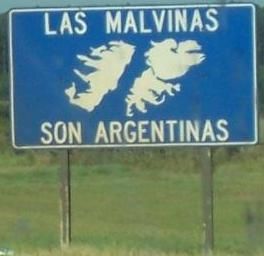
The battle of the 100 years does not look like it is going to end anytime soon.
A referendum by the people of the Falkland Islands will have around 2,000 islanders, currently British citizens, vote on their political status on Sunday. The development is set to bring a new twist to the long-standing diplomatic battle between Britain and Argentina.
Britain expects the referendum will give out a resolute "yes" from Falklanders to stay British, and hopes that it will send a strong message of ownership to the government of Argentina. The South American country has repeatedly refused to recognize the British-rule over the archipelago, which is named Las Malvinas in the Argentinean books.
This referendum will be the first in two decades. In 1986, four years after the end of the Falkland War, islanders voted overwhelmingly in favor of British sovereignty. Now, it looks like almost 100 percent will reaffirm their desire to remain British.
Argentina, on the other hand, insists that the referendum is illegal. President Cristina Fernandez de Kirchner's government insists that the Falklands are not a third-party, but British citizens; therefore, they have no right to self-determination. Marcelo Kohen, an Argentinean international law expert in Geneva, insists that, according to international treaties, it is for the UN to decide how to put an "end to the colonial situation" in the Falklands. "But this referendum is not from the UN, it is implemented by the British government.
Argentinean war veteran Miguel Savage insists that there is not enough political weight in the decision, because there are not enough Argentines in the island.
"The referendum is a joke," he added.
Britain, on the other hand, insists that the islanders have the right to self-determination and have rejected Buenos Aires sovereignty.
A majority of Argentines believe that the Falklands belong to them, as it is stated in the constitution. Documents show that in 1974 Britain proposed shared rule of the archipelago to then President Juan Domingo Perón. But just three weeks after the decision, Peron died, and with him, all hopes of reclaiming the islands.
Then, in 1982 the war started with the invasion of the Argentinean military, which ended up in a defeat for the South American country and it ended the seven-year long dictatorship to open the way to democracy.
The war led to a great resentment towards Argentina that has still not cooled off.
"The barriers that are there are ones that Argentina has built," said Falkland assembly woman Jan Cheek.
© 2025 Latin Times. All rights reserved. Do not reproduce without permission.




